Maximizing Health & Vitality: Benefits Of A Personal Trainer For Over 50’s
Personal Trainer for Over 50’s. Personal training for individuals over 50 is not just about staying fit; it’s a holistic approach to wellness that focuses on maintaining and enhancing quality of life. As we age, our bodies undergo various changes, making it crucial to adapt our fitness routines to accommodate these shifts.
This comprehensive guide delves into the benefits, considerations, and strategies for personal training tailored specifically to those over 50, aiming to inspire and empower you to embrace a healthier lifestyle.
Understanding the Importance
The significance of personal training for individuals over 50 cannot be overstated. Regular physical activity helps manage weight, reduces the risk of chronic diseases such as heart disease, diabetes, and osteoporosis, and improves mental health and cognitive function. It also plays a crucial role in maintaining mobility, flexibility, and balance, reducing the risk of falls and injuries.
Tailored Fitness Programs
A one-size-fits-all approach does not apply when it comes to fitness, especially for the over 50s. Personal training programs should be customized to meet individual health conditions, fitness levels, and goals. A personal trainer with experience in working with older adults can design a balanced program that includes cardiovascular exercises, strength training, flexibility exercises, and balance training.
Cardiovascular Health
For heart health and endurance, moderate-intensity aerobic activities such as walking, swimming, and cycling are recommended. These activities help improve heart and lung function without putting too much strain on the body.
Strength Training
Strength training is crucial for maintaining muscle mass, which naturally decreases with age. Using resistance bands, free weights, or body weight exercises can help build strength, improve metabolism, and support bone health.
Flexibility and Balance
Incorporating flexibility and balance exercises into the routine is essential for preventing falls, a common risk for individuals over 50. Yoga and Pilates are excellent for enhancing flexibility, improving balance, and strengthening the core.
Safety Considerations
Safety should always be a priority. Before starting any new fitness program, it’s important to consult with a healthcare provider, especially for those with pre-existing health conditions. A personal trainer can ensure exercises are performed correctly to avoid injury and can adjust the program as needed to accommodate any physical limitations.
Motivation and Consistency
Staying motivated and consistent can be challenging, but setting realistic goals and finding activities you enjoy can make a significant difference. Working with a personal trainer not only provides personalized attention but also accountability, which can greatly enhance motivation and adherence to a fitness routine.
The Social Aspect
Joining group fitness classes or clubs can also add a social element to exercise, making it more enjoyable and less of a chore. Social support from peers can boost motivation and make physical activity a more engaging and fun part of your life.
Choosing a personal trainer, especially for those over 50, requires careful consideration to ensure that the trainer is well-equipped to meet the unique fitness needs and health considerations of older adults. Here’s a comprehensive guide to help you select a personal trainer who can guide you safely and effectively towards your health and fitness goals.
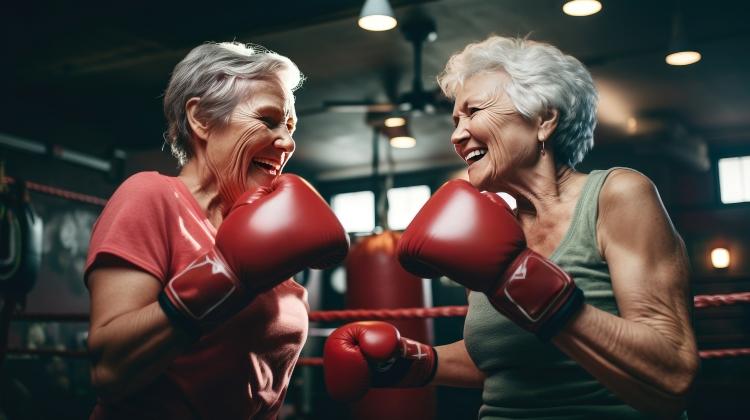
Personal Trainer For Over 50’s: How To Choose A Personal Trainer
1. Specialization and Experience
Look for a Trainer Specialized in Senior Fitness: Trainers with experience and certifications in senior fitness are more likely to understand the physiological changes that occur with aging. They should be knowledgeable about common age-related conditions such as arthritis, osteoporosis, and cardiovascular issues, and understand how to tailor workouts to accommodate these conditions.
2. Certifications
Verify Professional Certifications: Ensure the personal trainer holds a current certification from a reputable organization such as the American Council on Exercise (ACE), National Academy of Sports Medicine (NASM), or American College of Sports Medicine (ACSM). Specialized certifications in working with older populations, such as the ACSM’s Certified Exercise Physiologist (EP-C) or the Senior Fitness Specialist certification from NASM, are particularly valuable.
3. Personalized Approach
Assess Their Ability to Customize Programs: A good Personal Trainer For Over 50’s should offer a thorough assessment before starting any program to understand your fitness level, medical history, goals, and any physical limitations. They should be skilled in creating personalized workout plans that address your specific needs and adjust these plans as you progress.
4. Communication Skills
Evaluate Communication and Compatibility: Effective communication is crucial. Your trainer should listen to your concerns and goals, explain exercises clearly, and provide constructive feedback. It’s important that you feel comfortable and trust your trainer, as a positive trainer-client relationship can significantly impact your motivation and success.
5. Safety and Injury Prevention
Prioritize Safety: Choose a Personal Trainer For Over 50’s who emphasizes proper form and technique to prevent injuries. They should be attentive during sessions, correcting your form as necessary and adjusting exercises to prevent strain or discomfort. Ask about their experience in injury prevention and how they plan to address any existing injuries or health concerns you have.
6. Accessibility and Convenience
Consider Location and Availability: The trainer’s location and availability should fit your schedule and lifestyle. Whether you prefer to train at a gym, at home, or outdoors, ensure the trainer can accommodate your preferred location and has scheduling flexibility.
7. Cost and Commitment
Understand Costs and Contract Details: Discuss fees upfront and understand what the payment schedule looks like (e.g., pay-per-session, monthly packages). Be clear on cancellation policies and any long-term commitments required.
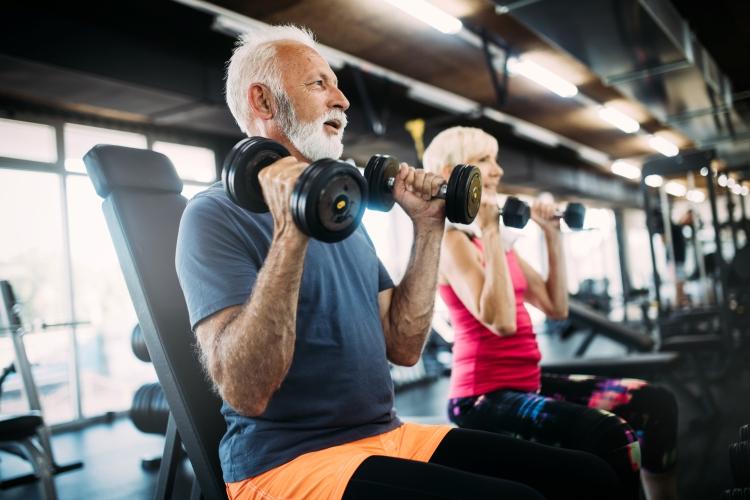
Personal Trainer Over 50’s FAQ:
1. Why should individuals over 50 consider hiring a personal trainer?
As we age, our bodies go through various changes that can affect our physical capabilities. A personal trainer specialized in senior fitness can design a safe, effective exercise program to improve strength, flexibility, balance, and cardiovascular health, reducing the risk of chronic diseases and enhancing overall quality of life.
2. What qualifications should I look for in a personal trainer for someone over 50?
Look for Personal Trainer For Over 50’s with certifications from reputable organizations like the American Council on Exercise (ACE), National Academy of Sports Medicine (NASM), or American College of Sports Medicine (ACSM). Additional certifications in senior fitness or specific conditions (e.g., arthritis, osteoporosis) are beneficial.
3. How often should I work with my personal trainer?
Frequency depends on your fitness goals, current fitness level, and budget. Starting with two to three sessions per week can provide you with structured guidance and allow you to learn proper technique. As you become more confident, you may reduce the frequency but maintain regular check-ins for progress updates and program adjustments.
4. Can a personal trainer help if I have pre-existing health conditions?
Yes, a well-qualified Personal Trainer For Over 50’s with experience in working with older adults can tailor your fitness program to accommodate and address health conditions such as heart disease, diabetes, arthritis, or osteoporosis. Always consult with your healthcare provider before starting any new exercise regimen.
5. What type of exercises will I be doing?
Your exercise program should be well-rounded, including cardiovascular activities (e.g., walking, cycling), strength training (using weights, resistance bands, or body weight), flexibility exercises, and balance training. The specific exercises will be customized to your fitness level, goals, and any physical limitations.
6. How do personal trainers ensure exercises are safe for older adults?
Experienced Personal Trainer For Over 50’s prioritize safety by starting with a comprehensive assessment of your health and fitness level. They focus on proper form and technique, gradually increase the intensity of workouts, and modify exercises to prevent strain or injury. They also stay attentive to your feedback and adjust the program as necessary.
7. What should I wear to a personal training session?
Wear comfortable, breathable clothing that allows for a full range of motion. Properly fitted athletic shoes that provide good support are also essential. Your trainer can offer specific recommendations based on the activities planned for your session.
8. How can I stay motivated to continue with personal training?
Setting realistic goals, tracking your progress, and finding activities you enjoy can help maintain motivation. Additionally, the accountability and encouragement provided by a personal trainer can be a significant motivational factor.
9. Is it worth the investment?
Investing in a Personal Trainer For Over 50’s can provide you with personalized guidance, reduce your risk of injury, and help you achieve your health and fitness goals more efficiently. Many find that the benefits, including improved health, mobility, and quality of life, justify the cost.
10. How do I get started with a personal trainer?
Begin by identifying your fitness goals and any specific health considerations. Research trainers with experience in senior fitness, verify their certifications, and read reviews or ask for references. Most trainers offer a consultation or trial session, which can be an excellent opportunity to assess compatibility.
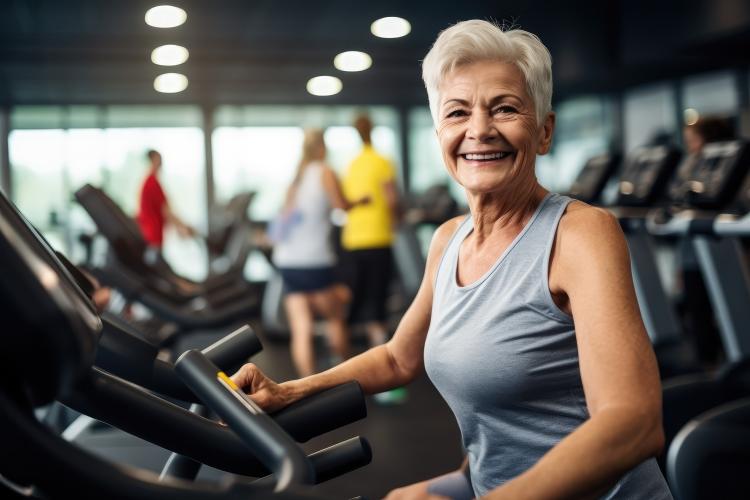
Over 50’s persona trainer benefits:
- Improved Physical Health: Personal training can help enhance cardiovascular health, increase strength and flexibility, and manage or prevent chronic conditions such as diabetes, heart disease, and osteoporosis.
- Enhanced Mobility and Balance: Tailored exercise programs focus on improving balance and mobility, reducing the risk of falls and injuries, which is particularly important for older adults.
- Customized Fitness Plans: Personal trainers design workouts specifically tailored to accommodate the individual’s fitness level, health conditions, and goals, ensuring exercises are both safe and effective.
- Increased Motivation and Accountability: Having a personal trainer provides a source of motivation and accountability, helping individuals stay committed to their fitness goals.
- Injury Prevention: Trainers emphasize proper form and technique, minimizing the risk of injuries during workouts.
- Mental Health Benefits: Regular exercise under the guidance of a personal trainer can improve mental health by reducing symptoms of anxiety and depression, enhancing mood, and boosting overall well-being.
- Social Interaction: Personal training sessions can offer social interaction, which is beneficial for mental health and can sometimes lead to new friendships.
- Education and Guidance: Trainers provide valuable information on health and fitness, teaching clients how to exercise effectively and make healthier lifestyle choices.
- Adaptability: As fitness levels and health conditions change, personal trainers adjust workout plans to meet evolving needs, ensuring continuous progress.
- Convenience and Flexibility: Personal trainers often offer flexible scheduling and location options, making it easier for individuals over 50 to incorporate regular exercise into their lifestyle.
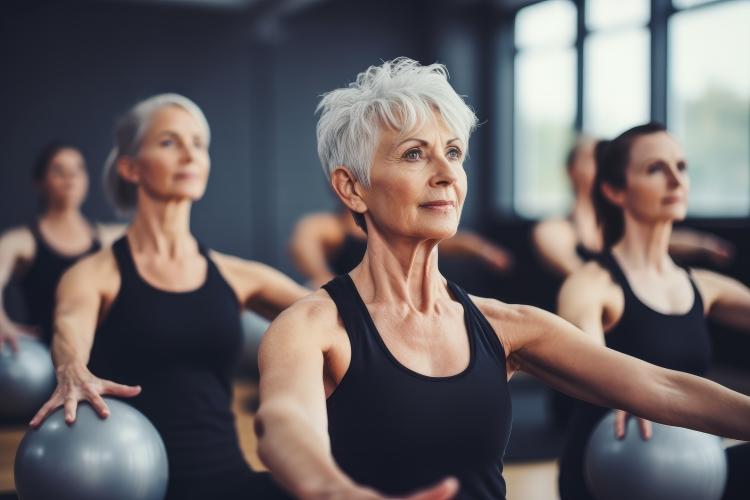
Personal Trainer Over 50’S Conclusion:
For individuals over 50, personal training offers a pathway to improved health, mobility, and overall quality of life. By focusing on tailored fitness programs, safety, motivation, and the social aspects of exercise, it’s possible to maintain and even improve physical and mental wellness well into later life.
Embracing personal training is not just about adding years to your life; it’s about adding life to your years. Whether you’re just starting out or looking to enhance your current fitness routine, the right approach to personal training can help you achieve your health and fitness goals, ensuring you remain active, healthy, and happy for years to come.

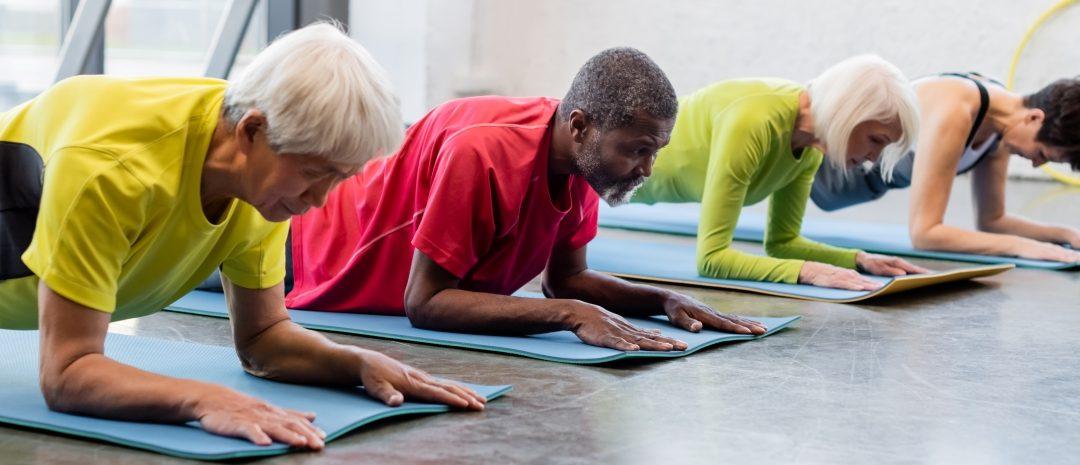
Recent Comments